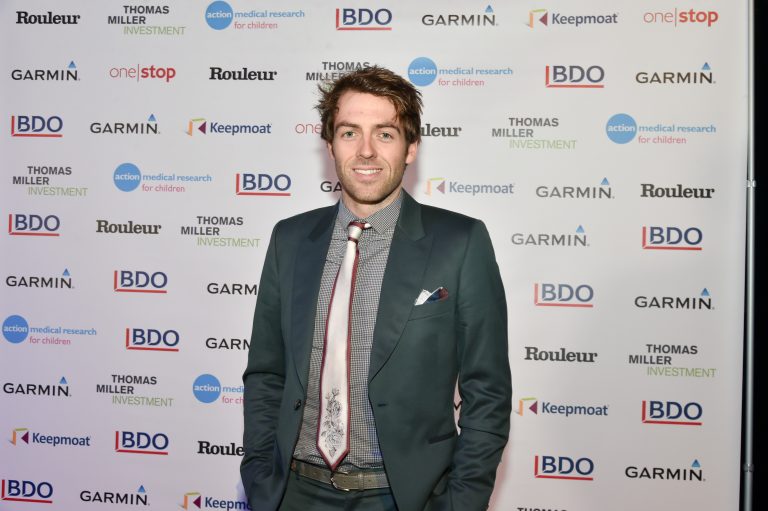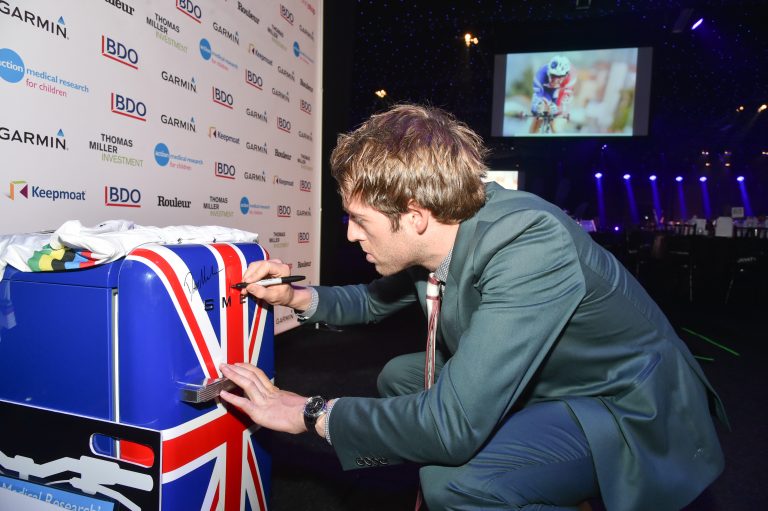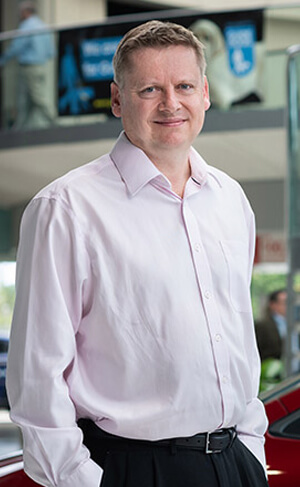Interview with Professional Cyclist and Haemophiliac Alex Dowsett on Life and Training under Lockdown
Alex Dowsett is a professional cyclist for Team GB, a six times time trial national champion and Commonwealth Gold and Silver medallist. He suffers from haemophilia, a rare blood disorder and is one of the few elite sportsmen in the world to compete with the condition. He is long listed for the Tokyo Olympics and if selected, will be the first haemophiliac to have competed in the able-bodied Olympics. Alex recently become an athlete ambassador for Toyota GB (PLC).
Alex has daily treatment to control his haemophilia but has permanent damage to his left elbow from frequent bleeds in the joint, so he can’t fully bend or straighten his left arm. He has dedicated his life to raising awareness of haemophlia and runs a charity called Little Bleeders: http://www.littlebleeders.com/, to help young haemophiliacs stay active and healthy.
The following interview with Alex was conducted in April to find out how he is keeping in good physical and mental shape during lockdown and how he has adjusted his training plans for the longer lead time until the Olympic Games in 2021.
Q1. How are you adjusting to the new way of living? Have you picked up new hobbies?
It’s definitely been a shock to the system. I’ve spent months preparing for the Olympics and years of being a cyclist with a clear picture of what each week, month and year ahead would look like, to this weird limbo state where the racing season has been paused. I find the hardest part of the day is waking up, remembering that I’m in this state of waiting to get going again. But life is ok. I was in a very good place fitness wise pre-lockdown and it’s easy to maintain that. You really have to go off the rails to be starting from zero again!
I’m racing cars online when I’m not training: Gran Turismo with a full wheel and pedal setup which feeds back in a way that isn’t dissimilar to the real thing. I’m not bad, it’s fun and passes time. I’ve picked up an online engineering course too. It’s not an official degree or anything, just to understand more about man and machine, bike and car!
Q2. How are you coping mentally as well as physically with the lockdown
I’m doing okay, it’s a comfort knowing that all of us cyclists and athletes are in the same boat. The last two Olympic cycles I’ve been ruled out of contention for selection through injury. At least this year it doesn’t affect me solely. For London 2012 in March I broke an elbow and had serious post-surgery complications which scuppered any hopes of competing there. For Rio 2016 the scar and plate from a broken collarbone I sustained the year prior had opened up and the metal plate was exposed through the skin. I had to go into surgery quite quickly and that finished any opportunities I had to show I was worthy of being taken to the Olympics. Not to say I’d have been selected, as competition within GB is fierce, but I was denied the opportunity to try. In the back of my mind I wondered if anything would scupper this year. I didn’t envisage a global pandemic being the culprit! But I’m ok with it, my goal has been shifted a year, not ruled out, so I’m rolling with the punches and re-setting for another assault at the Olympics.
Q3. Can you share any tips on how sportspeople can continue their training mentally and physically under lockdown?
It’s been fascinating to see how different athletes have approached lockdown. Some are putting in huge hours and some have taken the opportunity to shut it down for a bit and take a mid-season break. I’m definitely in the latter group, with racing picking back up in the autumn potentially, we could be looking at no off season holiday this year and running straight into the 2021 season which has no signs of being affected. So my advice to athletes would be to make sure you take a mental break, training for no goal puts a much higher strain on your mental state and when things pick up I’d rather be chomping at the bit, fresh and ready to go, than mentally fatigued. It’s easy to keep things ticking over; don’t stop, just don’t run yourself into the ground. Take a day or two off, but don’t take 10 days. Most of all, be responsible. This global crisis is bigger than sport and it’s easy for us sportsmen and women to think our own world and subsequently the world revolves round us pedalling a bike or throwing a javelin, boxing in a ring or many other sports. This affects everyone and we all need to band together and get through it as a priority.
Q4. How has your Little Bleeders charity been affected by lockdown?
We’ve been very active in making sure whilst medical resources are poured into fighting Covid-19, that Haemophilia is still supported by being a platform to talk to families and patients that may be struggling or need reassurance. We’ve worked alongside Haemophilia consultants to spread key messages that if you have clinic appointments these could be done via the telephone, and that medication supplies have been safe and unaffected. We’re making sure that while haemophiliacs know to make use of non-urgent services, they’re also still able to contact the NHS for emergency situations. We’re encouraging everyone with haemophilia to make sure they remain active, as being fit and healthy complements the medication to keep any bleeding episodes at bay and whilst everyone is inside it’s important to remain active at a time when it’d be easy not to. Our ethos at our Little Bleeders charity is ‘Move More, Be More’ and it’s important to provide tools and resources to help during this time. On World Haemophilia day recently we ran a competition for youngsters to get creative and show their gratitude to the NHS through artwork. Everyone may be thanking the NHS now, but Haemophiliacs have been in their debt for a lifetime.
Q5. How are those with haemophilia affected by lockdown in terms of any treatment of ongoing medication they may need?
In the UK nothing should be affected, everyone just needs to be a bit more vigilant in making sure their stocks are good and they are treating themselves or their kids as normal. Any bleeding episodes that could have been limited is what we’re aiming to avoid.
Q6. How do you manage your race stints?
Bike racing is complex. There are many races within a race, you can win a race without winning any races within the race, and you can finish last in a race whilst winning some of the races within the race. Confusing doesn’t cover it…!
Some riders carve a hugely successful career out of never winning a race and helping others win. Races can be one day, they can be three weeks and everything in between: mountains, deserts, cobbles, long and short, we have it all. My specialty is the time trial, so that’s me against the clock and fastest time wins as opposed to the mass start races. However, with the exception of major championships (Olympics, Commonwealths, Worlds, Europeans) all my TT opportunities come as part of a stage race. So take the Tour de France for example, I might have to survive and endure 13 x 100mile days/stages before I get the opportunity to go for a result for myself which may be over a stage as short as eight miles. Aerodynamics and strategy is key on race day but I have to manage myself beforehand in the days leading up to it, trying to conserve energy whilst remaining competitive within the race or helping my teammates in their objectives. I’ll have a job to do every day in a race, from getting water bottles, to leading out the sprinter into the final kilometre at 40mph, but on TT, it’s my day and my opportunity.
Q7. Who inspired you to ride into sports?
My Father, Phil Dowsett, and his stories of motor racing were always amazing. We’d go to the British Grand Prix each year under his BRDC membership and the one year we couldn’t go to Silverstone Dad took me to Spa Francorchamps, although we swapped champagne (and orange juice for me) for burger vans and sleeping in the back of the car! I always remember at the Grand Prix Dad’s former motor racing colleagues and rivals spoke so highly of him and his raw talent in a car. Back then you had wealthy racers and you had talented ones. Dad was firmly at the talented end of the spectrum and his name is up on the wall in the BRDC clubhouse for the silver star award in 1988. I could write a book about the stories not just from Dad’s racing from his perspective but also from other’s anecdotes about him which really tell you how good he was. I’ll leave this one with you though, listening to Dad catching up with one of his old racing rivals (of whom he had the better of regularly) outside his glorious motorhome they naturally got onto the subject of daily driving cars. Dad had a Volvo T5-R (which he was very proud of as a driver’s car, 2.5l 4cyl turbocharged engine in what was the iconic Volvo estate touring car of the time), but this other a guy? Pointed towards his brand new pea green Lamborghini Murcielago sitting just behind us. I asked Dad what went so wrong afterwards if he was a better driver and were in a Volvo Estate!
In essence, it was these stories that left me wondering what kind of stories of my own I’d be able to tell my kids in the future. I saw Dad’s trophy cabinet and pictures on the wall every day as a kid and that combined with some other factors makes you strive to be more.
Q8. How are you adjusting your training and what hurdles do you need to overcome after a long break for the Tokyo Olympics next year?
There’s been a massive decompression since knowing my sole goal for 2020 has gone from being six months to 18 months away. My coaching team and I have been looking at the next objective for now, which will likely be the World Championships in Switzerland. We’ve looked for the positives in the pushback of the Olympics as well and that’s making advances in how to make me go faster. More time means more speed, so this could be the best thing that ever happened to my Tokyo Olympic campaign. For now though, I’m resting up getting ready to go again with the same intensity and impetus I had pre-Covid.
Q9. Do you follow a strict daily schedule that you can share with us?
Currently it’s not as strict as normal under the circumstances, I generally train one to three times a day, which involves online riding and strength and conditioning work, and this will be five or six days per week. I’m participating in my trade team’s (Israel Startup Nation) medical aid rides to help donate KN95 masks to places that need it most.
On a strict regime there’s more training, 25-35 hours a week and my diet is very controlled. Single sessions will be anything up to seven hours in length, covering 200km (125miles) at times. Or there’ll be shorter sessions which will be a much higher intensity. When I’m not training rest becomes the priority, so that’s sleeping, or a sofa with Netflix on. Chanel my other half keeps tabs on the nutrition. It’s very much a team effort.
Q10. Toyota conveys ‘Start Your Impossible’, a message that encapsulates our strong desire to recognise and overcome challenges. What is your impossible?
My impossible is the Olympics. I’ve achieved just about everything else in cycling and can be proud of that; of course there’s always more, but the Olympics and a medal there is the pinnacle of sport and this is something that’s eluded me for 12-16 years now for one reason or another. It’s my motivation when I wake up in the morning and my motivation to train and work as hard as I do.
My other impossible is chocolate. I know it’s bad for me, but I love it and I must refrain! I’m not sure which challenge is bigger, the four-year goal of a medal at the Olympics, or the daily willpower needed to avoid chocolate ha-ha!
Q11. Can you share some pro tips for training at home to keep your body going?
In the current climate have mini objectives and keep them fun and achievable. Training to just “get fit” or “lose weight” is too vague, unobtainable and open ended. A winter goal I’ve had for the winter just gone has been to improve my flexibility and I’ve gone from being a couple of inches away from touching my toes to being frighteningly close to putting a hand flat on the floor. Just make sure your goals are achievable and within grasp and then focus on the next one and this will help keep your motivation intact.
Q12. Lastly, what message would you like to give budding cyclists and athletes?
Fully submerge yourself in your sport. If it has different sub sports like cycling does, then try them all, as you never know if you’ll have a hidden talent for one of them. Any young wannabe sports men and women I’d recommend throwing yourself into as many different sports as you can. You may stumble across one you never even considered and that could blossom into a successful career or a hobby you love. This was the case for me with cycling and it ended up being both!
Q13. We know your father was a former Toyota racing driver. Do you share his love of motorsports?
Absolutely, Dad raced the BTCC series in a Corolla and Endurance races in a Supra. I’m an avid motor racing fan having grown up with it and our whole family is in the trade. Dad’s Toyota days in the BTCC also inspired my cousin Oliver to work in motor racing and he is now a team manager for the Motorbase team. It’s fair to say our Christmas family get together conversations centre more around cars than bikes! I’ve done a lot of go karting and a few bits and pieces on track. Notably a day in Caterhams with Dad was a highlight. It took me all day to clock the same lap time as he did in the morning more or less straight out the blocks. It really showed me the difference between him and I! I’m also on Gran Turismo a fair bit, with a full steering wheel and pedal setup which has been great for passing time and fulfilling my competitive needs! Obviously I choose to be contracted with Toyota in game and this involves GT3 and GT4 Supras to use, which is great fun. I’m hoping when my cycling career comes to a close I can take up some kind of car racing. we’ll have to see where I’m at that time, as it’s a tough sport to get into.
Ends



